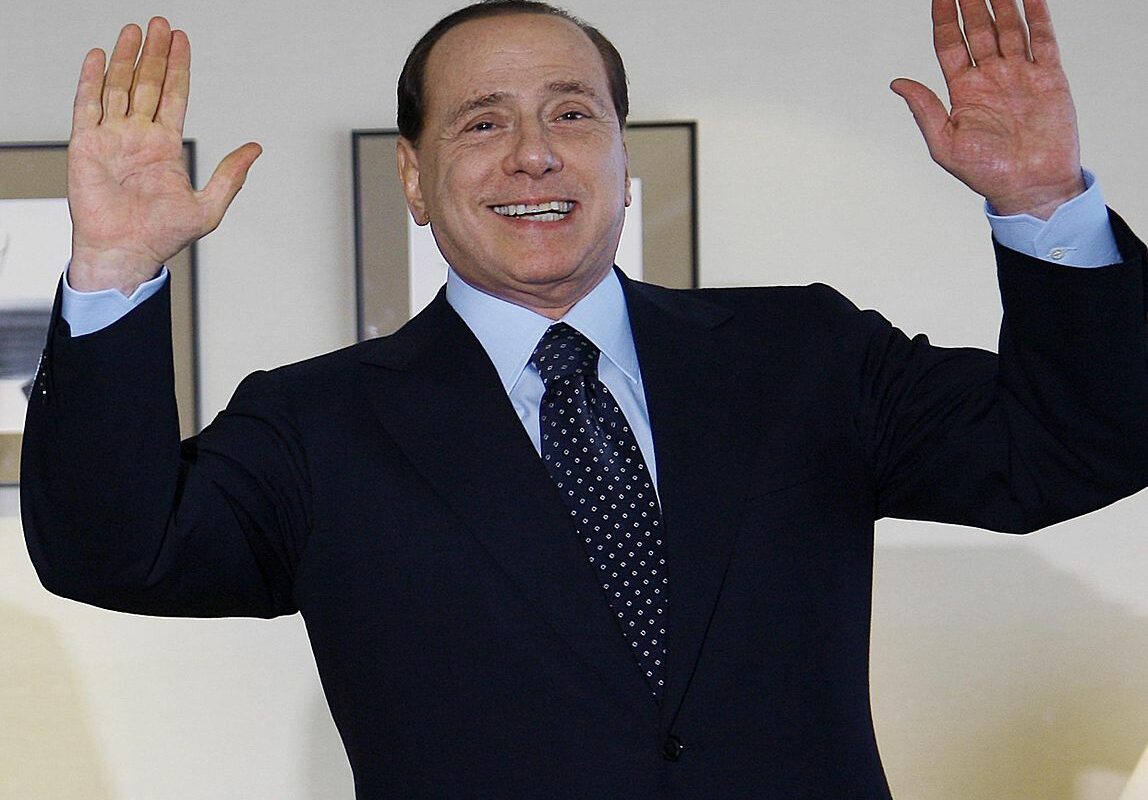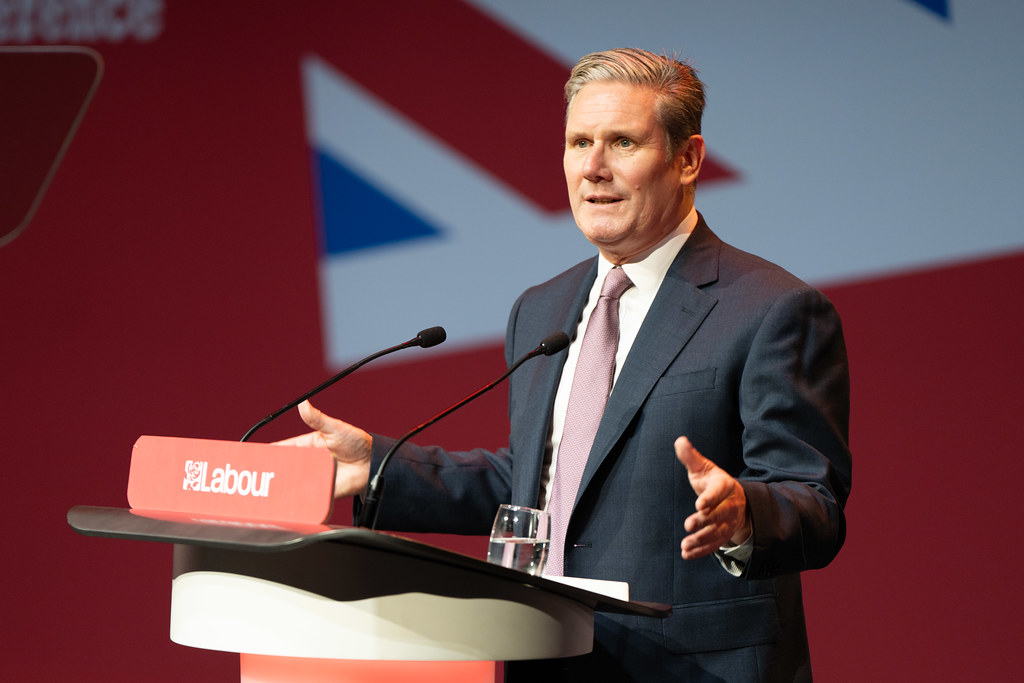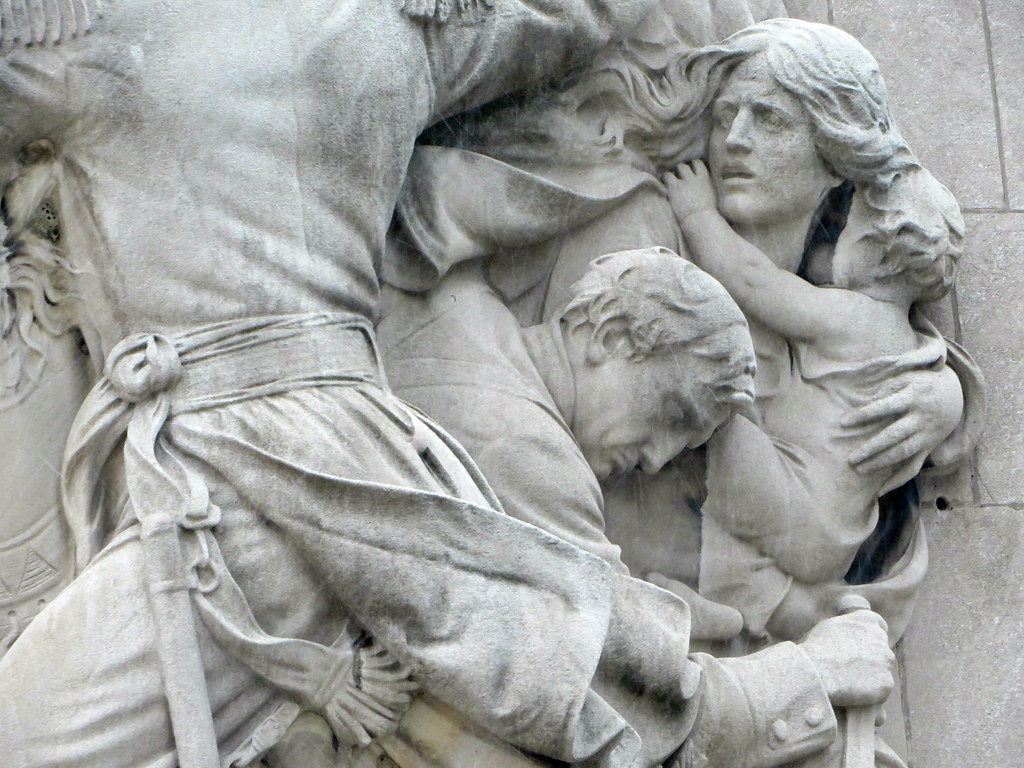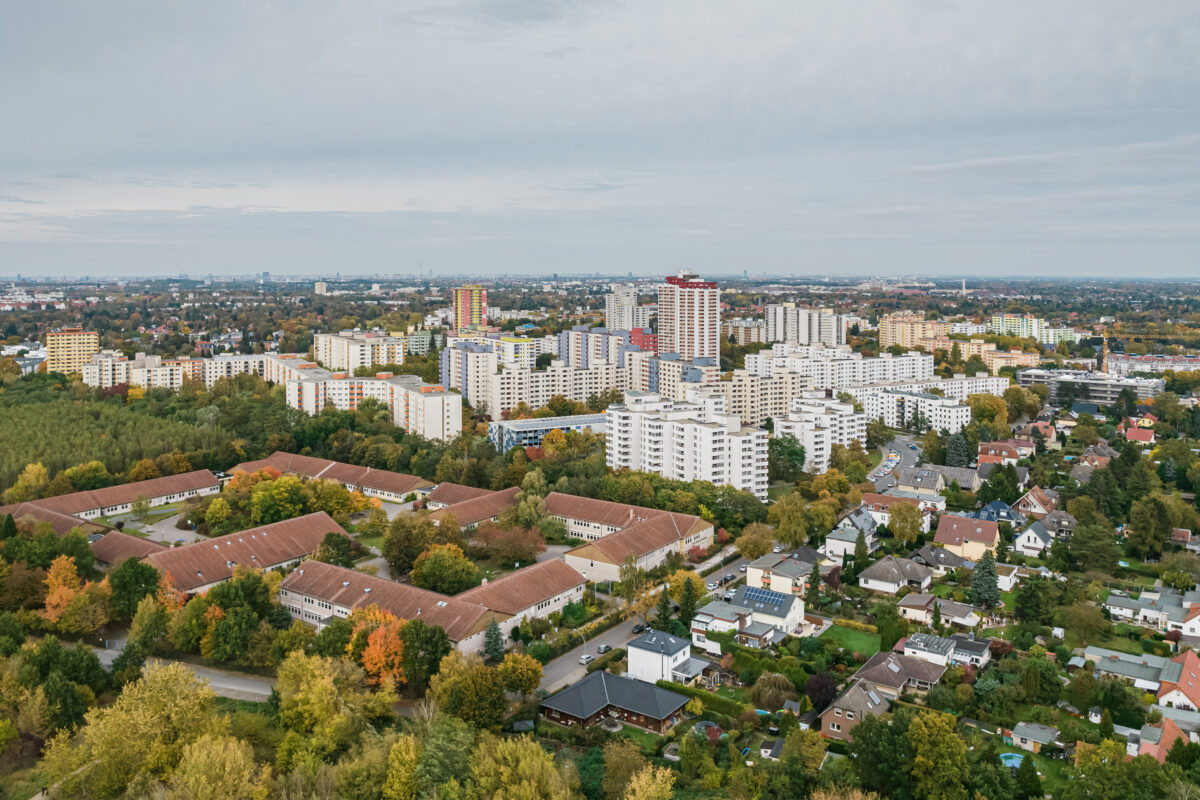While Berlusconi was buried in Milan, during a State Funeral on June 14 2023, the whole country was instructed to celebrate a day of public mourning. The Italian media, with few exceptions, duly threw themselves in a frenzy of commemorative praise, propelling Berlusconi into the thousand-year-old genre of hagiography. For days in a row, millions of Italian citizen-viewers were bombarded with media images of mourning and celebration for a man that, apparently, must be gravely missed.
Those interested in who Silvio Berlusconi really was may find out by reading the many articles and books written on him, or by watching the several documentaries produced about his life and career. In the past three decades, in fact, a few independent intellectuals insisted in their mission to tell and remind Italians how Berlusconi, the richest man in Italy, had earned his wealth and power. Over the years, many of these professionals disappeared from the country’s public arena, while a few resourceful ones survived and even established some independent media – a rarity over there. What these (few) brave journalists found through decades of work has very little to do with magic, and will certainly ring a bell in the mind of anyone who ever had a penchant for social equality: it is not possible to become filthy rich without ripping off your neighbour.
Berlusconi was born in 1936 in Milan to a bank employee and a stay-at-home wife. Silvio’s father would have a prominent career within his bank, where he was destined to become director. Meanwhile, young Silvio attended grammar school at the private Salesian Institute and then studied law at the University of Milan. As a student, Silvio sings in a band and sells household appliances to earn some extra cash, then, after his degree, makes his debut in real estate, propelled by his father’s contacts in Italy’s financial capital. After selling his first apartment buildings in Milan, Berlusconi makes his real exploit with Milano 2, a residential complex close to the town of Segrate, not far from Milan’s Linate airport. These are the years of Italy’s post-war economic boom, and satellite towns are a fashionable model of living for the aspiring middle classes of the prosperous industrial north. The modern, trendy satellite town even includes its own local TV broadcaster, Telemilano.
Backed by investors whose identity still remains unclear, Berlusconi becomes a rampant estate developer and launches a number of other business ventures. [1] He takes control of a constantly increasing number of regional and local TV broadcasters, with the only national one remaining RAI, the state broadcasting company. After founding Canale 5, Berlusconi buys two more channels, with their local broadcasting licenses. In 1984 his network allows him to broadcast the same programmes on three channels across the whole country. This should be a prerogative of the state broadcasting company, but Berlusconi can get away with it because he formally only owns local broadcasters. During the following 10 years, Berlusconi’s media empire grows at an impressive pace, as he takes control of Mondadori, the largest publishing company in the country, which controls not only book publishing, but also several of Italy’s main journalistic publications. In 1986 he also buys the AC Milan football club. Berlusconi thus becomes increasingly known across the country as the clever and reckless entrepreneur who converts everything he touches to gold. [2]
Berlusconi’s achievements, in reality, have a lot to do with the complacency and complicity of a wide network of personal “friends”, clients, figureheads, and political patrons who allowed him to circumvent the law. In order to build this formidable circle of mutual assistance, Berlusconi got involved with pretty unpalatable company, like the mafioso Vittorio Mangano, whom he hired as stable keeper in the 1970s, after a recommendation by his old friend and close collaborator Marcello dell’Utri. Dell’Utri, who would later be a Senator of the Republic, is eventually tried in the context of several investigations. He served a prison sentence for having collaborated with the mafia, and has since been released. [3]
In his search for “good friends” Berlusconi also entered the masonic lodge Propaganda 2, ideologically close to the most reactionary areas of Italian politics. The main objective of this convivial group of well-to-do gentlemen is to counter the rise of the left and promote the supremacy of the executive over the other democratic powers. Berlusconi’s fellow members are important people: civil servants, members of the secret services, bankers, lawyers, journalists. The rampant entrepreneur, with his media company Mediaset, is the ideal member for an organisation that aims at the ideological remaking of the country. In the space of a generation, Italy has moved from post-war poverty into fully-fledged consumerism. In the 1980s young Italians are dreaming of lives that are impossibly different from those lived by their parents, and are ready to enjoy something bolder than the polite and buttoned-up entertainment offered by RAI. The colourful and cheeky Mediaset programmes respond to the expectations of the public. The American TV series populated by blonde beauties and reckless car drivers, the exotic manga cartoons and the comedy shows decorated by scantily dressed ladies sweep up generations of viewers young and old.
Mediaset programmes shaped the imaginary of whole generations of children and young people. In 1994 these people would, together with their families, vote Berlusconi into government. At the time, Italian voters had not yet recovered from the implosion of the Italian Communist Party and from a string of major corruption scandals that had swept away the rest of the political and entrepreneurial class. Berlusconi had just lost his political patron and personal friend Bettino Craxi to the public prosecutor, and had to find someone else who could protect his interests in the political arena. And who could do this better than himself? He founded Forza Italia, presented himself as a self-made man who would make everybody as rich as he was, and a few months later he was sworn in as Prime Minister. Berlusconi was elected three times and served four terms as Prime Minister. During his mandates he carried out a systematic dismantling of the RAI public service to the advantage of his own Mediaset channels; his lawyers, who sat in Parliament as MPs, drafted a plethora of new laws aimed solely at protecting his own private interest and impunity. His far-right allies regularly passed these bills, since in return they could promote a string of repressive and unfair laws. One example of this is the infamous 2002 Bossi-Fini immigration bill, which made it extremely difficult for undocumented migrants to escape detention and greatly contributed to rising racism in Italy.
When Italians did vote Berlusconi out of office, the Parliament failed to become much of an impediment for him. Disaffected leftist voters started wondering why those who were supposed to be his adversaries were so harmless towards him. Then, once back in power, Berlusconi attempted to rewrite history, suggesting in 2009 that Italy’s Liberation day be renamed “Day of Freedom”. This because, according to him, those who died during WW2 should all be mourned, independently from their political camp. This was, first of all, a gift to his far-right allies and a clear attack on the Resistance and the anti-fascist values that had founded the Italian Republic. Secondly, his declaration constituted once again an appropriation of the value of freedom, which he always claimed as the basic principle underpinning his media, business, life, and politics.
Freedom was, according to Berlusconi, the differential unicum that made him superior to his political enemies, whom he called “the communists”. As time went by, leftist politics was gradually purged from Parliament and his tirades increasingly concerned “the judges”, often creating the illusion that magistrates, too, must be communist. Berlusconi’s media apparatus promoted a systematic delegitimating of the judiciary, whose services were not up for sale as those of the lawyers he hired. Berlusconi claimed as his privilege the freedom he had offered to television viewers: market freedom, i.e. the freedom to buy and sell anything for money. The success of his electoral campaigns relied on lies based on a transactional nature: the promise of one million new jobs, the signature of a mock “contract with Italians” during a popular TV programme, the assurance of lower taxation, etc. This was a relief for many voters, who did not want anything more than to forget about politics. For many of his critics, Berlusconi was a weird creature who did unconceivable things, like pronouncing the word “Nazi” in the European Parliament during a discussion with a German social democrat MEP. Many, both in the country and abroad, became intoxicated by his taste for making a spectacle of himself, seeing him as some kind of gifted comedian. This is rather unfortunate, as Berlusconi’s extraordinary ability to entertain both his friends and enemies was the one talent that allowed his impunity. During the last years of his life Berlusconi was ridiculed because of the sex scandals that surrounded him, yet the other side of this decadent guignol was the immense fragility of a Prime Minister who at any point in time could be blackmailed by any of the innumerable buffoons eating at his court.
Some observers have interpreted Berlusconi’s boundless ambition and his obsessive desire to embody the alpha male as a sort of “death of the father”, which would in turn herald an age of total permissiveness. However, if it is true that Berlusconi had the inclination to step over any boundary, in time his ability to do so became increasingly reliant on the limits of his viewers’ imagination, rather than on his own inventiveness. His increasing freedom to buy and sell anything he wanted went hand in hand with the loss of rights and freedoms of those living in Italy, while many of them came to see him precisely as a father figure whose authority should not be challenged.
Berlusconi’s legacy is for all to be seen: a country where, after decades of economic crisis and stagnation, the citizenry has lost all confidence in institutions. During the past 30 years the only ideological frame of reference offered by the media and the cultural industry has been defined by rampant individualism, nationalism and the cynical belittling of civic and social rights. In the meanwhile, Berlusconi’s supposed opponents abdicated their political and cultural role. As Chinese revolutionary intellectuals showed in the 20th century, imagination is key to politics. It is therefore not surprising that a large share of the Italian electorate, long deprived of any progressive ideological horizon, cannot imagine anything better than what they see: the far-right coalition led by Berlusconi’s political heiress, Giorgia Meloni.
[1] Cremagnani, Beppe and Deaglio, Enrico and Oliva, Ruben. 2005. Quando c’era Silvio. See also John Hooper’s obituary.
[2] Berlusconi was first interviewed for the television by Enzo Biagi in 1986. Biagi, former partisan and the most revered political commentator in Italy, would leave RAI in 2002 after Berlusconi’s Bulgarian diktat. The 1986 interview can be seen here.
[3] Michael Day’s 2015 book Being Berlusconi: The Rise and Fall from Cosa Nostra to Bunga Bunga describes this. See also Quando c’era Silvio.




